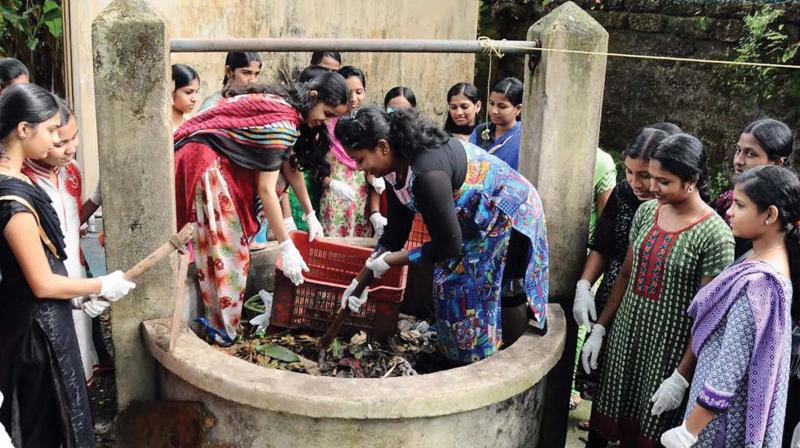Kozhikode: Zero waste' to enter phase three
Second phase of the project focused on disposal of non-degradable waste.;

KOZHIKODE: The second phase of zero waste Kozhikode project to convert the district to zero waste has been completed. The comprehensive waste management scheme was taken up by collector U.V. Jose in association with Kerala Haritha Mission. It was executed with the help of people from different sectors, including the elected representatives and self-government bodies. The project gave sustainable waste management solution to dispose of non-degradable waste in the district.
“During the first phase, the government offices were targeted and through various selected wings we implemented zero waste management projects in these institutions. Project clinics were introduced in every panchayat and 12 block panchayats were allotted super Material Recovery Facility (MRF) and mini MRF was installed in 70 grama panchayats. MRF has already been prepared for seven municipalities and corporation. A total of Rs 70.43 crore has been spent for the project,” the collector said. Plastic waste and other non-degradable waste such as footwear, carry bags, clothes, glasses, tubes, bulbs and e-waste were collected from these institutions. The project will be expanded to the pending places in the next phase.
Panels to be formed to protect water bodies
Water protection committees will be formed in every panchayat in the district to save all the major and minor water bodies, including wells and rivers. These committees will ensure that water is not polluted in any way, the district officials said. The committees with the panchayat president as chairman will take action against those polluting water bodies.
They will create awareness among the school and college students about the need to protect water bodies, plant saplings, stop throwing waste to water bodies, especially those meant for drinking purposes, do rainwater harvesting, use systematic way to generate water for agriculture purposes and also create awareness among public.“Monthly reports on the activities of the committees will be sought by the district panchayat president,” said collector U.V. Jose. “It is a collective attempt to protect the water bodies to save us from extreme drought,” he added.

